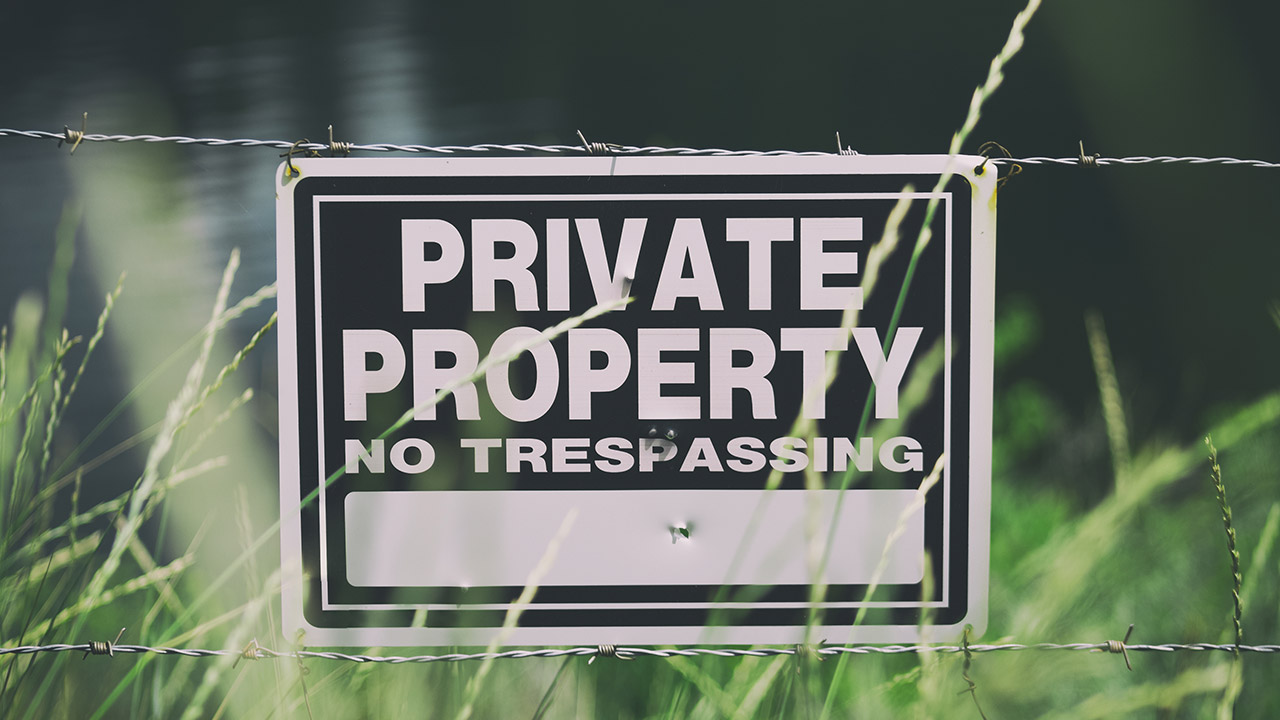As a homeowner, you have the right to keep trespassers off your property. You likely wouldn’t allow complete strangers let their kids play on your lawn or use your amenities for their own amusement without your permission.
These are more obvious signs of trespassing, which require some level of vigilance on your part to make sure trespassers keep off your property. But did you know that trespassing can go so far as resulting in your loss of ownership on part of your land?
It’s called adverse possession, and it occurs when a trespasser uses another’s property as an owner would use it, occupy it, and eventually gain ownership of that portion of the land. The amount of land taken over can be as little as a few inches to as much as a few acres.

How Does Adverse Possession Happen?
Sometimes trespassers are intentionally occupying someone else’s land for their own pleasures, while many times they are using the portion of the land unknowingly.
In the state of California, certain elements need to be present in order for adverse possession to be legitimate. The possession of the property of another must be:
In addition to all these elements, trespassers need to prove that they’ve been paying taxes on the property for the entire five year period in the state of California.
If you, as the owner of the property, do not evict the trespasser before the five years expire, that individual can legally claim title to that portion of the land.
To illustrate how adverse possession can happen in California, let’s say John and Jill are next door neighbors. Relying on faulty surveys or property descriptions in a deed, John builds a fence that actually encroaches on Jill’s property by two feet. Jill doesn’t say anything about it, because she doesn’t realize that this piece of land is actually hers.
Five years go by, with John using that extra two feet of land as his own, and actually paying taxes on it during that entire time period. Under California’s definition of adverse possession, John would stand a good chance of claiming ownership to that piece of Jill’s property. The courts in California would probably hesitate to force John to rip down the fence after all of the elements described above have been met.
Don’t confuse adverse passion with easements, however. For instance, there may be a legal easement on a deed that allows a neighbor to use your driveway to access his or her property. An easement is a shared right with another person over a portion of the property; on the other hand, adverse possession involves a total switch in title.
What Can You Do if Another is Claiming Ownership of Your Property?
The first – and most obvious – action you should take is to ask the individual to stop entering your property, and remove all of his or her structures from it. The person will most likely agree if it was an honest mistake.
Should the individual continue to trespass on your property, you’ll need to speak with a real estate lawyer. Most likely an action to quiet title will have to be brought forth, which is a legal strategy to determine who the rightful owner of the property is.
With an action to quiet title, you will be asking a judge in a California court to issue an order stating that you are the real owner and hold title to the land, and are not the trespasser. If you plan on selling your home in the near future, you will probably have to take this route in order to give the buyers reassurance that the portion of the land will eventually be transferred to them.
The Bottom Line
As a homeowner, it’s important to be vigilant of other people using a portion of your land as their own. It’s also important to have an accurate, detailed survey or property description so there’s no mistaking what portion of the land is allocated to you versus your neighbor. When in doubt, contact a real estate lawyer who can advise you on what course of action you can and should take to make sure another person doesn’t claim title to your rightful piece of the land.